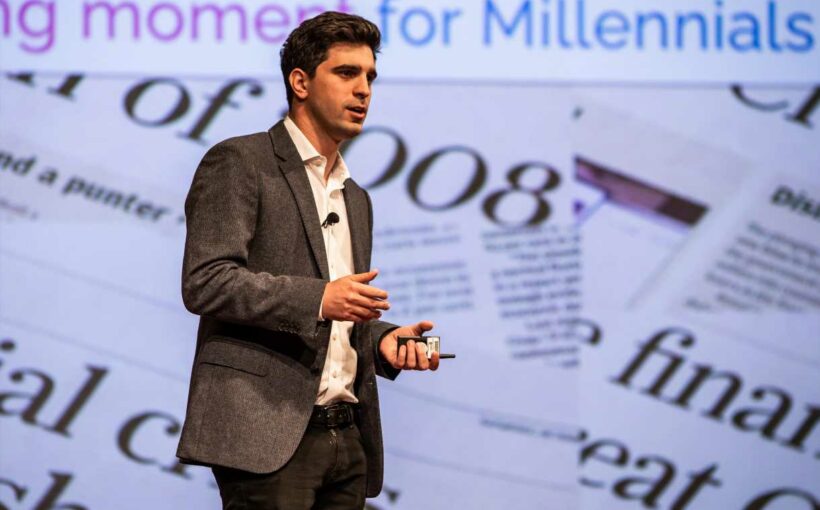LONDON — Clearpay is stretching to southern Europe, inviting merchants in Spain, Italy and France to join the “buy now, pay later” platform in an e-commerce market that exceeds 150 billion euros.
The company’s entry into southern European follows its acquisition of Pagantis, a Spanish-based payment company. Clearpay has also received regulatory approval from the Bank of Spain to offer its products across Spain, France, Italy, Portugal and Germany.
As of Monday, merchants in Spain and France will be able to join the platform, while their Italian counterparts will be able to do so later this month.
In an interview, Nick Molnar cofounder and co-chief executive officer of Clearpay, said the company will launch in southern Europe with more than a billion dollars in gross merchandise value.
He said that there’s already a team on the ground in each of the markets, “and Pagantis has been really important. There are approximately 100 people who’ve been in the market for the past six to seven years, so we have the local expertise. We understand the regions.”
Molnar said Clearpay already has hundreds of retailers signed in the three markets, and the company is confident about the spending dynamics in the region.
“It’s very exciting for us,” he said, adding that Clearpay’s existing merchants had been asking it to move into the region. The company said that Spain, Italy and France combined have an addressable e-commerce market that exceeds 150 billion euros.

Related Gallery
Backstage at Chanel RTW Fall 2021
Clearpay is the European trading name for Afterpay, which is quoted on the Australian Stock Exchange with a market capitalization of 32.41 billion Australian dollars, or $25.17 billion.
Clearpay touts partnerships with top fashion, beauty and lifestyle brands and retailers. It said that, globally, around 75,000 retailers offer the Clearpay/Afterpay services to more than 13 million active customers.
In the first half of fiscal 2021, Afterpay said it posted $10.1 billion in global, underlying sales on a constant currency basis.
With e-commerce sales booming, and a generational shift toward the use of debit cards rather than credit cards, Clearpay argued that it’s the right time to strike in Europe.
It noted that in the European Union only 11 percent of all consumers trust credit cards, while 32 percent of Millennials, and 29 percent of Gen X consumers, find credit cards “scary.” It added that more than 90 percent of Clearpay global purchases are made with debit cards.
The company added that Millennials today make up 27 percent of the population globally and as much as 50 percent of the workforce. In 2021, Millennials will have the highest spending power, with almost $15 trillion worldwide, according to Clearpay.
Asked about global spending trends among Millennials and Gen Z, Molnar said, “we’re absolutely seeing a generational shift away from credit to debit in that cohort. Clearpay came out of the 2008 financial crisis when Millennials became adults. That was the starting point of the shift. The pandemic has deeply accelerated the shift from the credit economy to the debit economy, and now you’re seeing older generations engage with debit at faster rates than ever before.”
Southern Europe offers enormous potential for the platform, said Molnar, adding that Afterpay entered the North American market two-and a-half years ago, and “we are now doing over a billion dollars in gross merchandise value per month, and growing at north of 200 percent year-on-year.”
He said the size of the southern European market is similar (although not as big) as North America. “We feel strongly about the opportunity, and the size that the [southern European] business could become,” he said, adding that in the last year, global e-commerce overall grew faster than it had done in the last 10 years.
Clearpay offers consumers the chance to buy immediately and pay in four instaLlments over a short period of time without incurring interest or revolving and extended debt. The company does charge late fees, however, and screens potential customers for eligibility.
Molnar said Clearpay is growing in new directions. He said that in the month of December the platform sent 45 million leads to retail partners worldwide via the app and the website. “It means that we can be a marketing channel, and not just a payment product,” he said.
Last month, Clearpay became the principal partner of London Fashion Week with a significant two-year deal that will see it underwrite all of the British Fashion Council’s talent initiatives, support local designers and offer consumers greater access to brands and members of the industry.
The BFC deal followed Afterpay’s move to become the sponsor of Australian Fashion Week last year, replacing Mercedes-Benz.
Molnar said it’s likely that Clearpay could forge similar fashion week deals once it begins operating in southern Europe in earnest.
“The fashion and beauty eco-system has supported us from Day One, and we’ve had tremendous success in the retail category. Synergies with fashion weeks around the world are imminently present — and top of mind,” he said.
Source: Read Full Article
